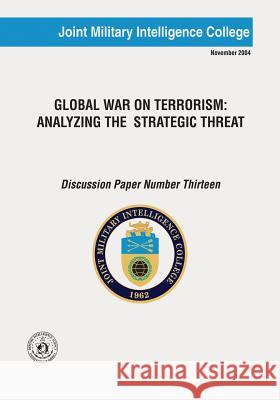Global War On Terrorism: Analyzing The Strategic Threat » książka
Global War On Terrorism: Analyzing The Strategic Threat
ISBN-13: 9781523747870 / Angielski / Miękka / 2016 / 152 str.
Since the infamous attacks on the United States of 11 September 2001, there has been a tendency in some quarters to lay the blame on Islam. Others, not wanting to go so far, have pointed the finger of guilt at Wahhabism, a particular school of thought within the Islamic world most closely associated with the Kingdom of Saudi Arabia. Still others, wary of indicting a whole religion, the heart-felt belief system of approximately one-fifth of humanity, have argued that the al-Qa'ida movement of Osama bin Laden and others, that most believe was responsible for the 9/11 attacks, has been engaged in an effort to "hijack" Islam. Within the Islamic world itself, those who have sought to dissociate "mainstream" Islam from the al-Qa'ida jihadists have tended to label them khawarij (seceeders), a term that hearkens back to the early days of Islam, when a group of early Muslims, disillusioned with the Sunni-Shia split over who should lead the new political religious Islamic movement, "seceded" from the larger community and went their own way. Notably, the early khawarij emphasized the centrality of jihad as a unifying mechanism for the community, the importance of which transcended the petty leadership squabbles of the early community. They were fairly quickly marginalized in mainstream Islamic history.
Zawartość książki może nie spełniać oczekiwań – reklamacje nie obejmują treści, która mogła nie być redakcyjnie ani merytorycznie opracowana.











